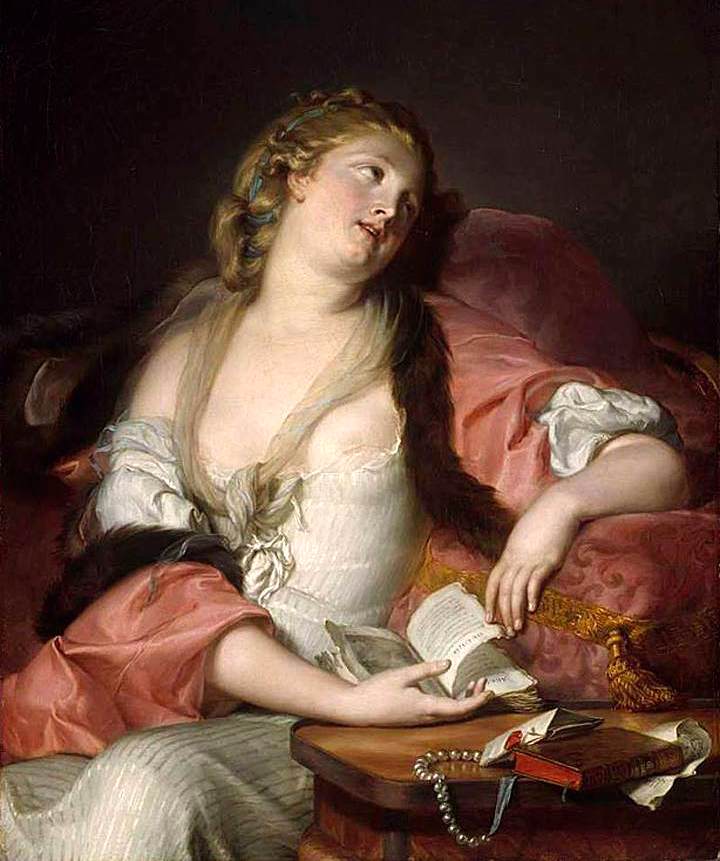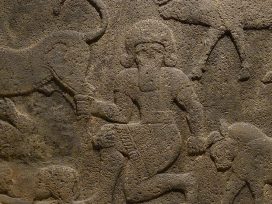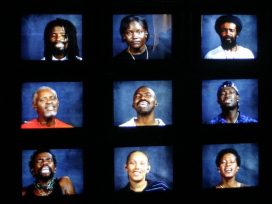In September last year, the author Lionel Shriver upset many people with a speech in which she stridently affirmed her right, as a novelist, to imagine and represent people unlike herself. It didn’t help that she donned a sombrero – an ironic comment on campus identity politics – to make the point that she, as a writer, had the right to try on as many hats as she liked. It also didn’t help that Shriver rested her case almost entirely on her own imaginative rights. “Why is it in the language of rights?” observed Claudia Rankine, author of the acclaimed Citizen: An American Lyric: “Like white people should have more stuff? […] ‘It’s my right to take what I want?’ Isn’t that the history of colonialism? It’s my right to take resources? It’s my right to take land? It’s my right to have slaves?” Rankine was giving Shriver a history lesson: the intimate links between imaginative rights and property rights, creative license and economic and political appropriation, are at least as old as the eighteenth century, and there is nothing trivial about them.
Had Shriver paid more attention to the political history behind the liberal bogey of cultural appropriation, she might have defended her rights to imagine other lives with another legacy from the eighteenth century: the more persuasive argument that imaginative sympathy with others is a moral and political good. This is the tradition that the British novelist Ian McEwan evoked shortly after 9/11. “It is in the nature of empathy to think one’s self into the minds of others,” he wrote in the Guardian. “It is hard to be cruel once you permit yourself to enter the mind of your victim. Imagining what it is like to be someone other than yourself is at the core of our humanity. It is the essence of compassion, and it is the beginning of morality.” His was a popular, and much quoted, intervention. In 2017, when abuses in war zones or under dictatorships proliferate and world leaders show their disdain for international agreements on human rights, many would say imaginative empathy is more necessary than ever.

Bernard d’Agesci, Lady Reading the Letters of Heloise and Abélard, ca. 1780. Source: Wikimedia
But are McEwan’s claims about the humanising power of the imagination any more sound than Shriver’s defence of her right to imagine what she likes? Today, when human rights are under such sustained attack, it would be perverse to call for less empathy. But we also need to acknowledge the political context for those feelings. For human rights advocates in the West, the call to feel more is partly an anguished response to the calculated unwillingness of their governments to do more: it is no coincidence that the arts and humanities are also struggling to defend their public value just now. A culture that routinely devalues arts education is never going to be great for human rights.
Then again, people do read literature. They do imagine other lives through books, film, TV, drama and art; and they do it gladly. The problem is that we no longer know what to do with our imaginative humanitarianism. Recent studies back up the claim that reading fiction makes us more empathetic, and for good reason. Words push the mind both inwards and outwards; other lives become possible, plausible, real. What remains a puzzle is how we might get from imagining other people to agreeing to share resources and power with them. Our moral sentiments are not necessarily wanting in quantity, but confronted with new scales of cruelty and inequality they are lacking meaning. Just as the historic mission of global humanitarianism is now challenged from all directions, so is the literary humanitarianism implicit in McEwan’s novelistic moralising missing a political context.
An uncritical idealism about human rights isn’t helping us address this problem. Following Rankine’s lead, it is worth remembering that the great rights revolutions of the eighteenth century – in France, in America – were as much about the transferring of power, property and land as they were about lofty ideas of l’humanité. These transfers were good things, but it was to take a lot of dark, violent history before the political and national rights of propertied male citizens became the universal human rights that, theoretically at least, belong to us all now. Along the way, there would be a lot of imagining and re-imagining about what kinds of person might count as human.
The growth of moral sentiments, as urged by the thinkers of the Enlightenment, played a large part in that reimagining, and so did literature. The historian of human rights Lynn Hunt has argued recently that it was the soft power of the novel, as much as the violent seizing of privilege, that delivered lessons about human equality most effectively. Books about virtuous suffering, such as Rousseau’s Julie, or the New Heloise, and Samuel Richardson’s Pamela and Clarissa, gave empathy lessons for a new age of liberty. Soon after, the abolitionist movement would discover that detailed descriptions of the lives, bodies and minds of slaves – including accounts from former slaves like Olaudah Equiano – were capable of inciting sympathetic passions. Literature was vital in helping spread the idea of human rights.
But the road to rights was more jagged than this upbeat history might suggest. As the eighteenth-century philosopher David Hume pointed out, moral feelings were all the more necessary in a world in which the market had begun to dictate the terms of human relationships. Moral sentiments flourished partly because some parts of the world were learning to prosper by creating new forms of inequality. The more connected by trade and ambition the world got, the more the gaps in wealth and power opened up, and so the more need for generous imaginings about others. Moral sympathy was the flipside of the possessive individualism of the new bearers of rights and economic power. It still is.
Once again, the novel is important in this history. If one type of book was about the tough lives of people less privileged than their readers – the servant girls and slaves deserving of moral compassion – another provided an innovative model for the new subject of rights. The Enlightenment philosopher Jean-Jacques Rousseau thought that novels made a better case for liberty and equality than philosophy, and instructed that his protégé Émile should read only Defoe’s Robinson Crusoe. Fiction, Rousseau thought, made the revolutionary idea of natural rights feel real – but only for the newly empowered of the Enlightenment; only, that is, for male property-owning citizens.
So, in the same novel, Émile would also have discovered the limits to the idea of natural equality. Crusoe becomes his own sovereign-master, “prince and ruler of my kingdom” – this is the lesson he has for Émile. But it did not follow that rights cascaded down to all in the kingdom. The only one of Crusoe’s subjects permitted to talk to him, for example, was Poll, his parrot. Man, said Plato, can be defined as a “featherless biped capable of speech and reason”. Defoe understood that the absence or presence of feathers alone would turn out to be a poor measure of humanity in the new age of rights. Today, comfortable Western novelists continue to give lessons about the imagination and moral compassion to the rest of the world without, apparently, realising that the literary moral sensibility we cherish was not, and is not, historically innocent.
The real question today is not only how we can generate more generous imagining in the world (the answer is not difficult: encourage more imaginative reading and restore the arts and humanities to core curricula), but why we tell ourselves that reading is going to redistribute human rights. What do we want our books to do that we cannot? In truth, there’s always been a bit of bad faith in the idea that our generous feelings might make a difference to anybody other than ourselves. The dead know nothing of our grief, Adam Smith noted in The Theory of Moral Sentiments. Just over 200 years later, the philosopher Richard Rorty made this sad fact a pillar of his chastened post-Cold War liberalism. The Western liberal knows that her narratives of compassion are no match for the brute realities of an unequal world, he argued, but still she must try. Rorty’s was a postmodern version of moral sympathy we need to keep generating compassion for “people unlike ourselves”, but this endeavour is premised on the ironic recognition that things are unlikely to get better.
As Rorty knew, irony is a luxury. It is easier to shrug your shoulders when the weight of poverty and war is not on your back. But does it follow that the core of humanity also belongs to the liberal ironist? Victims, Rorty wrote in 1989, “are suffering too much to put new words together. So the job of putting their situation into language is going to have to be done for them by somebody else. The liberal novelist, poet, or journalist is good at that.” Sometimes when you think you’re being ironic, it actually sounds like you’re just being insensitive.
The problem is not Rorty’s appropriation of other people’s voices and suffering. The embarrassment is that his liberal novelists, poets and journalists do not seem to have registered that their way of doing human rights in the world is no longer working – if it ever really did. Neither is the problem here literature itself: writers can (as Shriver knows) do whatever they like, or whatever the market will take. The trouble lies more with an unhistorical idealism about human rights. We tend to think about rights, usually correctly, as being progressive, yet things have never been that straightforward. “There is no innocent literature,” Jean-Paul Sartre asserted in a lecture he gave for UNESCO’s first festival in 1946. It was as true to say that there are no innocent human rights.
The extraordinary moral, political and legal energy that went into the remaking of human rights after the Second World War created the institutions which make it possible for us to discuss, legislate and argue for human rights today. Because the “rules of natural law were flouted”, argued the philosopher Isaiah Berlin, we “were forced to become conscious of them” again. Human rights were rebuilt through a shared “memory of atrocity”. McEwan was borrowing his moral authority from that moment in 2001. But as historians have argued, human rights have always had conservative as well as radical agendas, and the rights revolution of the last century was no exception. As much as a commitment to the dignity of all, a more cautious realpolitik of consensus in an atomic age helped shape universal human rights in the late 1940s.
With this in mind, we should not be surprised to discover (from literary critic Joseph Slaughter’s Human Rights Inc) that when the drafters of the United Nations Declaration on Human Rights sat down in 1948 to think about the post-Holocaust age of rights, they did not turn to a modern writer such as Kafka, but (like Rousseau before them) to Defoe’s Robinson Crusoe. The drafters were debating Article 29, which, as the Declaration now reads, affirms man’s duties to “the community in which the free and full development of his personality is possible”. Once a revolutionary lesson in natural rights for the young Émile, as Slaughter shows, for the UN delegates Robinson was a convenient literary anachronism that allowed advocates on both right and left of the postwar human rights project to claim they knew what kind of person was owed rights: for the Soviets this was the social Robinson who built his island out of the shipwreck of modern capitalism; for the West he was the bold individualist who freely developed his world.
Despite the demands for decolonisation, universal education and political and economic rights that surrounded and, to a large extent, nourished the postwar human rights movement, nobody argued that Crusoe’s Man Friday might also be entitled to rights, duties and a freely developing personality. Nor indeed did anyone suggest that after the Holocaust an eighteenth-century European novel might no longer be the best way of imagining a human right.
Others at the time had a different take on the natural rights legacy. “To contrive a little kingdom, in the midst of the universal muck then shit in it, ah that was me all over.” This was Samuel Beckett’s contemporary Robinsonade from his 1946 novella The End. Beckett knew a thing or two about post-war humanitarianism and human rights. He wrote his story after a stint working for the Irish Red Cross in Saint-Lô, Normandy. The city had been laid to waste by the US air force in 1945. Like McEwan later, Beckett looked for compassion in the ruins; or rather, he eyed compassion up and found the blithe charity of humanitarianism – of the “having and the not having” as he put it in an unbroadcast radio talk – severely wanting.
Beckett puts feeling into words with more dauntless precision than perhaps any other European writer of the mid-twentieth century. But he was no literary humanitarian, or at least not in a conventional sense. In 1946 he looked at the world and thought that what was needed was less moral sentiment and more imaginative solidarity. In his broadcast he spoke of a collective “smile deriding, the having and the not having, the giving and the taking, sickness and health.” Beckett’s weeping, like his laughter, is always shared; that’s why it feels so intimate despite all the muck and squalor.
“Ever tried. Ever failed. No matter. Try Again. Fail again. Fail better,” was Beckett’s famous dictum. The idea of a failing imagination might be a better starting place for reassessing the human rights project now. Humanity, Beckett also observed in 1946, is one of those words that always crop up during times of massacre. It is about as “welcome as a dum-dum bullet”. Beckett understood that violence is possible under the banner of humanity. That is another lesson we have yet to reckon with in an age when humanitarian intervention sometimes means sending over a drone to show people how much you care.
Beckett was a refugee during the war. Stranded in the Lot in 1940, he sat down and wept, just as thousands on Europe’s borders are doing now. Only 60 kilometres away, the political philosopher Hannah Arendt had found temporary refuge in Montauban, having escaped an internment camp. From there she went to the United States where she would finally end 18 years of statelessness when she became a citizen in 1950. An average of 17 years’ protracted displacement is often cited as a “killer fact” in today’s refugee advocacy. If it’s not quite accurate, it’s also not new. When Gogo mentions to Didi that he’d like to wander in the Pyrenees in Beckett’s Waiting for Godot he anticipates the deadening tedium of prolonged longing which has become the lives of so many.
Like Beckett, Arendt understood that simply attempting to resuscitate old sentiments about the rights of man would not do after the calamity of the Holocaust. It was clear, she later wrote, that the world found “nothing sacred” in the mere fact of being human. The Rights of Man were as dead as Defoe’s parrot. She also understood that rightless times called for a new kind of literature. One of the first things she did after the war was reread Kafka.
Feeling empathy for Kafka’s characters is difficult because, maddeningly, they seem to accede to the power that marks their fate. For Arendt, that dreadful, inevitable living-death feeling is the point. Reading Kafka doesn’t generate moral sentiment, but something less comfortable. That’s also the point, and why Kafka does not offer us an ironic perch from which to sensitively despair at the injustices of the world. In his world, dehumanisation is everyone’s fate.
For Arendt, it followed that the task of rehumanising also belonged to everyone. Rights do not naturally stick to people, nor are they gifts bestowed on the unfortunate by the generous imaginings of anxious liberals. Rights are something we grant one another in social and political life. That is why, Arendt would argue, the one right that needs protecting over all others is the right to have rights itself.
Another way of putting this is that the rights of the powerful – the political and civil rights so taken for granted in the UK and the US that we have just been conned into thinking they are expendable – only become human rights when we work at the question of what being human means in collective life. Narrative, fiction, poems, plays are central to this task. But we now need to embrace ways of thinking about literature that go beyond the trading of moral sentiments; and that, as Beckett and Arendt knew, means taking literature more seriously than as a desideratum for a compassion so violently lacking in the real world.
For millions today, words are not simply a way of looking at or feeling about the world, they are a world. In a workshop in Oxford last year, the Palestinian poet and political theorist Tamim al-Barghouti spoke about what it meant to be part of a community in which “living in words is not a metaphor”. Language and memory, narrative, poems, he said, become more important the more people find themselves stateless, stranded, deprived of the right to have rights – a process he described as “Palestinisation”.
If we want to reconnect the projects of writing and righting more meaningfully today, we in the West need to shift our imaginative, moral and political axis and start listening to the words now reverberating in the rightless places of the earth, in the camps, on borders, beneath the shadows of walls threatened and real, in detention centres, in the unregulated communities of migrant labour, along the new refugee rat runs. We have no need to assert our imaginative rights over others; we have those aplenty. Imagining what it means to be someone other than ourselves might (just) still be the “core of our humanity”, but unless we reckon with the chequered history of that “humanity”, generous imagining will remain just that: imagining.







